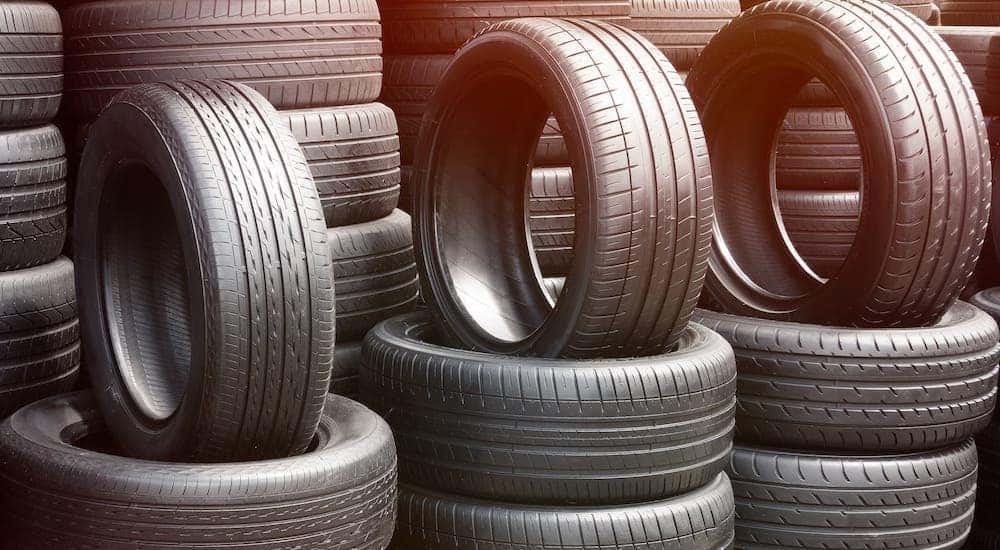Browse Smooth Roadways with Morris Tire: Your Trusted Tire Store Near Me
Browse Smooth Roadways with Morris Tire: Your Trusted Tire Store Near Me
Blog Article
The Ecological Benefits of Proper Tire Upkeep
Preserving correct tire care is usually neglected, yet its influence on the environment is extensive. Proper tire maintenance not just extends the life expectancy of tires yet additionally lowers landfill waste and contributes to boosted air quality.
Decreased Gas Intake
Improving tire maintenance methods can lead to a significant decrease in fuel consumption for cars. According to the U.S. Department of Energy, underinflated tires can lower gas mileage by 0.2% for every 1 psi drop in stress in all 4 tires.
In enhancement to tire stress, normal tire turnings and positionings likewise play a critical duty in gas effectiveness. Unevenly worn tires can increase fuel intake as the engine functions harder to keep rate and traction. By maintaining correct placement and revolving tires at suggested intervals, chauffeurs can guarantee even extend the life and wear of their tires, inevitably conserving fuel and decreasing their carbon footprint.
Extended Tire Life-span
Prolonging the life expectancy of tires is an essential aspect of reliable lorry upkeep practices that can generate expense savings and ecological advantages in the long run. By appropriately preserving tires, chauffeurs can significantly lengthen their functionality, reducing the regularity at which brand-new tires require to be produced and old ones gotten rid of. This not just preserves important resources but likewise minimizes the energy and emissions related to tire production and disposal procedures.
Regularly inspecting tire pressure, turning tires, and ensuring correct alignment are crucial steps in extending tire life expectancy. Adequate walk depth is important for optimum traction and safety and security, but it additionally plays a role in how much time tires can be utilized prior to needing substitute. In addition, avoiding hostile driving actions that accelerate tire wear, such as extreme stopping and sharp turns, can even more boost tire toughness.
Ultimately, enhancing the long life of tires via proactive maintenance not just profits the setting by reducing waste and saving sources yet also causes set you back financial savings for car proprietors by delaying the demand for new tire acquisitions.
Reduced Discharges Output
Efficient tire maintenance techniques add to a decrease in discharges outcome, aligning with environmental sustainability goals in the automotive market. By maintaining optimal tire stress levels, motorists can aid reduce these negative ecological influences.
Additionally, well-kept tires also boost traction and reduce rolling resistance, better boosting fuel efficiency. This, subsequently, minimizes the amount of exhaust gases launched right into the atmosphere. In addition, guaranteeing tires are appropriately pumped up and straightened can prolong the lifespan of the tires, lowering the frequency of tire substitutes and the associated ecological costs of tire production and disposal.

Lowered Garbage Dump Waste
Given the favorable impact of appropriate tire maintenance on lowering emissions result, another substantial environmental benefit is the capacity for reduced land fill waste. They put on out faster and need to be changed extra frequently when tires are not preserved appropriately. This leads to a higher volume of utilized tires being dealt with why not try this out in garbage dumps. By guaranteeing that tires are effectively inflated, aligned, balanced, and turned regularly, their life-span can be significantly extended. This implies that less tires end up in landfills, minimizing the quantity of non-biodegradable waste in these currently overflowing sites.

Improved Air Top Quality
Enhancing air high quality via proper tire maintenance techniques is an important facet of sustainable ecological stewardship. When tires are underinflated, they develop much more moving resistance, leading to enhanced fuel usage and greater emissions of dangerous pollutants such as carbon monoxide and nitrogen oxides. Effectively inflated tires not only enhance gas efficiency but likewise lower the quantity of pollutants released right into the air.
Moreover, well-kept tires with correct step deepness and alignment contribute to much safer motoring problems, reducing the possibility of mishaps that can cause the launch of added pollutants into the atmosphere. By prolonging the life expectancy of tires with routine upkeep and turning, less tires are thrown out too soon, lowering the ecological effect of tire disposal and production procedures.
Final Thought
In final thought, proper tire upkeep uses various environmental advantages. It is vital for individuals to focus on tire maintenance as a simple yet effective means to safeguard the environment for future generations.
Correct tire upkeep not only prolongs the lifespan of tires yet likewise lowers garbage dump waste and adds to enhanced air quality my link - tire view publisher site tracks morris il. By keeping proper placement and rotating tires at advised intervals, vehicle drivers can make sure even use and extend the life of their tires, eventually saving gas and lowering their carbon footprint
By correctly keeping tires, drivers can considerably lengthen their usability, minimizing the regularity at which new tires require to be made and old ones disposed of.On a regular basis checking tire pressure, turning tires, and ensuring appropriate placement are essential steps in expanding tire lifespan. Additionally, ensuring tires are appropriately inflated and aligned can prolong the life-span of the tires, decreasing the frequency of tire substitutes and the linked ecological costs of tire production and disposal.
Report this page